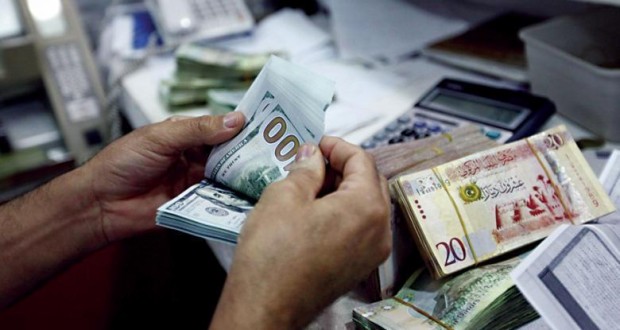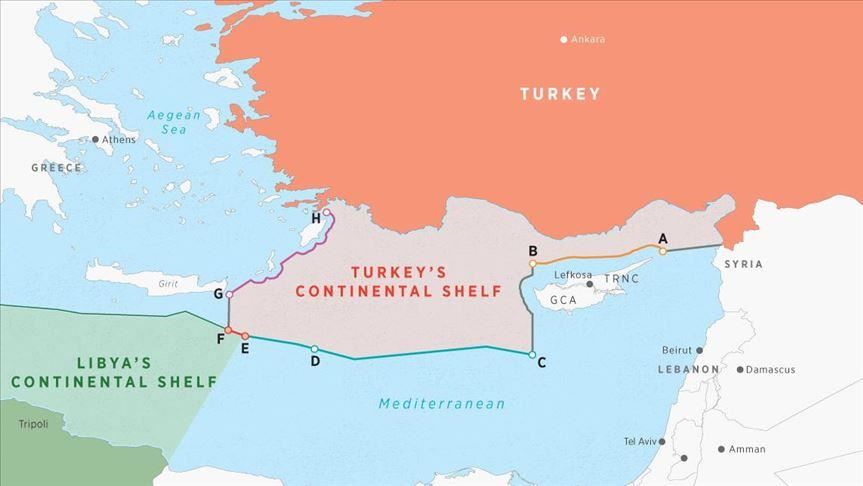
One of Khalifa Haftar’s properties sold after his conviction for war crimes
One of Prime Minister Abdulhamid Dbeibah’s main political rivals, Khalifa Haftar, is also facing challenges to his political ambitions. They are being jeopardised as the American position on the Libyan crisis and the wider region becomes clearer. This is especially true following the introduction of the Kremlin-linked Wagner Group mercenaries who have been supporting Haftar’s self-styled Libyan Arab Armed Forces (LAAF) since 2019, as well as Russia’s increasing activity and presence in Al-Jufra and eastern Libya in 2020.
Before being charged with war crimes by the US District Court for Eastern Virginia on 29 June, Haftar had commissioned two Washington lobbying firms to promote American support for him in the runup to the planned 24 December 2021 elections. In accordance with the presidential electoral law — which forces all military would-be candidates to step down from their posts at least three months prior to the election date — he had also appointed the LAAF’s General Abdulrazek al-Nadhouri as his interim replacement so that he could return to his position if he lost the election. Haftar’s efforts to rehabilitate his image in the US failed, however, after his unsuccessful but hugely damaging 2019-2020 siege of Tripoli. It has not gained any traction and instead he remains mired in legal challenges.
There are media reports that, in order to avoid having his assets frozen to pay his victims’ families, Haftar’s family has quietly liquidated its portfolio of American real estate and is selling: a multi-million dollar house in Virginia; a country house; and six-figure properties as his ‘legal troubles mount.’ The Federal Court is now evaluating the compensation package for the plaintiffs.
The current standoff between the leaderships of the House of Representatives (House) and the High State Council (HSC) is centred on their disagreement on one specific article in the draft electoral law which prohibits dual nationals including Haftar from running for office. Since House speaker Aguila Saleh and the HSC chairman Khalid al-Mishri met in Geneva last month, this issue has halted all the discussions on the constitutional track. The HSC is adamant about retaining the article now that the US trial has publicly proved that Haftar is a US national. He could renounce his US citizenship in order to facilitate his presidential bid but, under US law, he will be unable to avoid prosecution even if he does.
Haftar is also not guaranteed to win the presidential election even if he renounces his US citizenship so the benefits of giving up his US passport may not be worth the sacrifice. Additional criminal, rather than civil, legal cases are likely to be filed against him on charges related to the war crimes and crimes against humanity that his forces carried out in 2014-2020 when he began a series of military campaigns, wars and sieges under the pretext of fighting terrorism. He is currently facing two charges in France in relation to crimes, including torture, that were allegedly committed in Benghazi in 2014 and then in 2016-2017.
Haftar has previously sought immunity from prosecution by claiming that he bears presidential responsibilities and that Libyan laws punish those who reveal state secrets with the death penalty. The US judge overseeing the lawsuits rejected all of these claims and especially because the State Department refused to recognise Haftar as a head of state. He also ruled that a document submitted by Haftar’s lawyer to support his claims was forged following receipt of a letter submitted by the incumbent Government of National Unity’s (GNU) Defence Ministry which is headed by Abdelhamid Dbeibah. If Haftar renounces his US citizenship but continues to face legal repercussions for war crimes which were conducted when he was a US citizen, he will be desperate to become president in order to obtain immunity. This could encourage him to take drastic and even violent measures to ensure his victory at the expense of Libya’s stability and post-conflict recovery.
This excerpt is taken from our Libya Politics & Security weekly intelligence report. Click here to receive a free sample copy. Contact info@menas.co.uk for subscription details.


